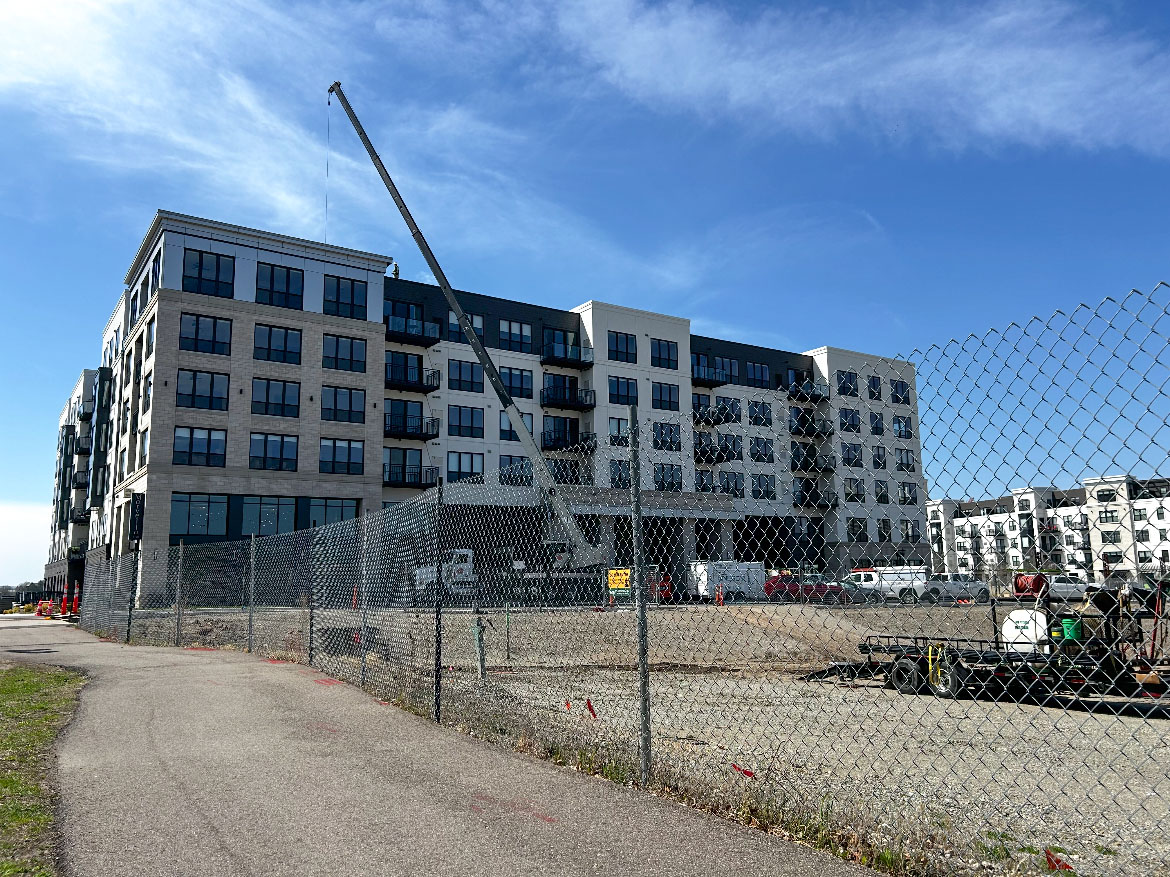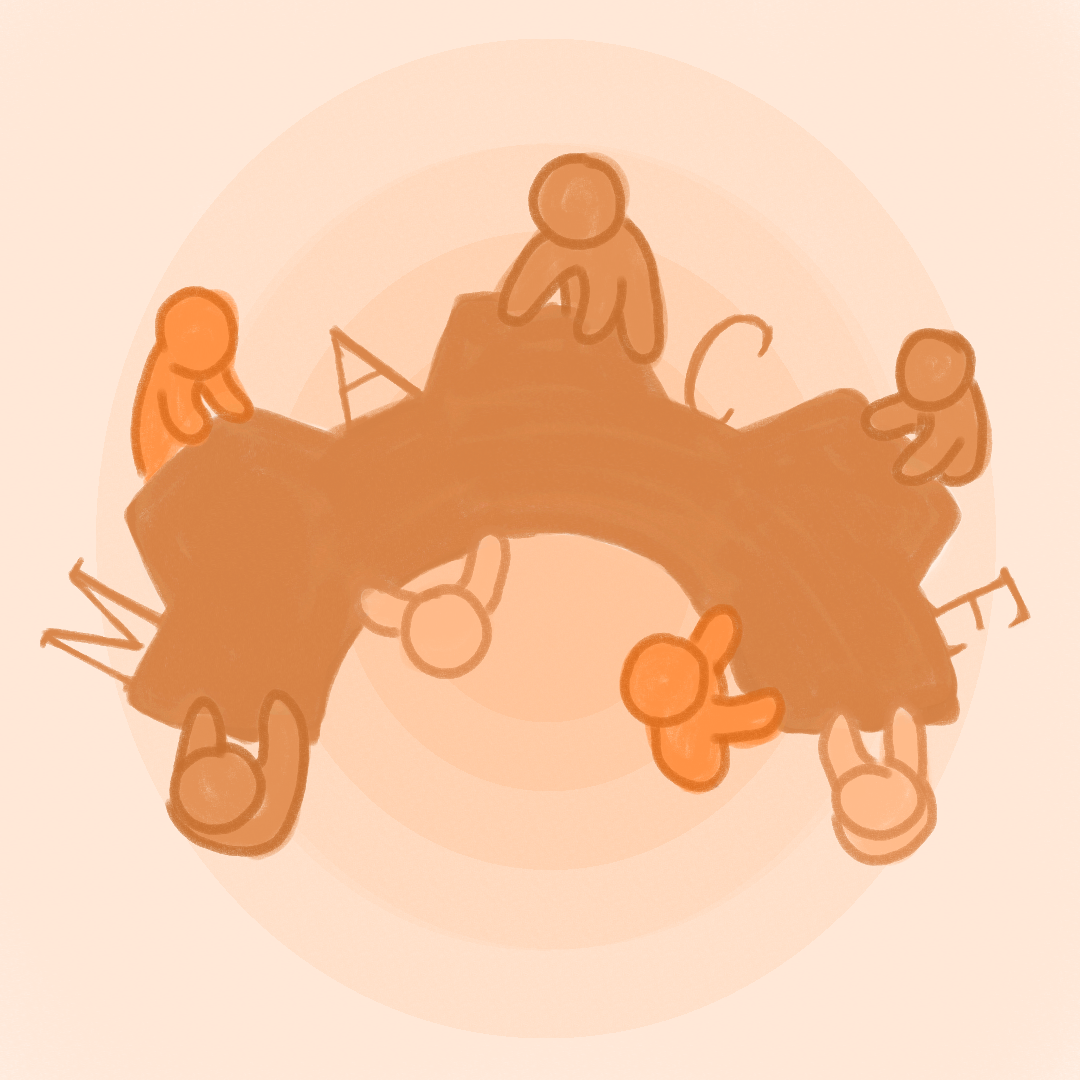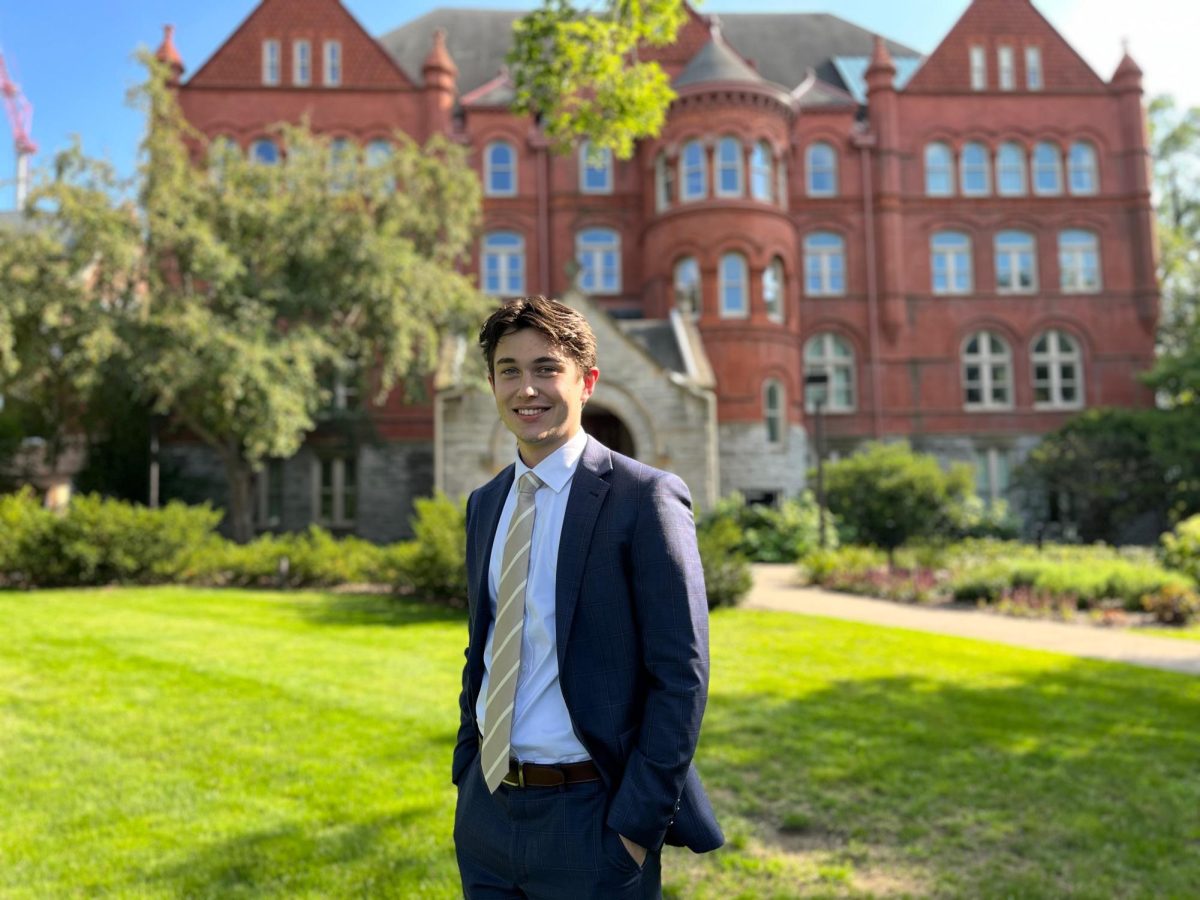On Saturday morning, as part of the annual Family Fest program, President Brian Rosenberg delivered a “State of the School” address in Weyerhaeuser Memorial Chapel. Below are several excerpts from Rosenberg’s remarks, lightly edited for clarity and length. Emphasis added.
“The state of Macalester is very good. What I want to talk about is something that I think about a lot of here — and I hope you think about a lot — and that’s what kind of people do we want our students to be?”
“One of the things I want every graduate of Macalester to be is empathetic. That is the ability to think about the world through the eyes of someone who is not you. It’s a quality that is in unfortunately short supply.” “One of the reasons that we try to create at Macalester a [diverse community] is so that students can regularly encounter people who are not the same as them — in terms of economic background, or geographic location, or nationality, or race. We do it not because it’s the right thing to do, but because we think it provides a better education. I am convinced that [striving for diversity] works.”
“One of the real pushes that we have right now is to increase the number of college-funded internships for students.”
“I think we want to graduate students who are resilient. Resilience right now is not a quality that is in ample supply among lots of people — and particularly, one could argue, among young people.”
“[Another important quality] is discernment. In short, the ability to sort through massive amounts of information — massive amounts of data — and find some truth and wisdom. I think this is one of the great challenges facing this generation of students.” “If you go out ten years from now, you will find that the ability to work with large amounts of data will be considered as essential a skill for educated people as the ability to write, or think or speak.”
Q: How do you reconcile students to be resilient with some of the trends in education today like safe spaces and trigger warnings?
A: I get asked this question in virtually every setting in which I do question and answer. One of the most challenging changes for colleges to navigate over the last few years has been this tension between the virtues of freedom of speech — and the importance, in the learning process, of having students made intellectually uncomfortable — and creating an atmosphere where all of your students feel safe enough to learn.
I think people underestimate the extent to which this has always been an issue. We’ve always gone back and forth on what’s enough free speech, what’s too much free speech, etc.
We try to find the right balance between forcing students to find discomfort, and not making things so uncomfortable for parts of our student body that they can’t learn.
The University of Chicago letter was… needlessly divisive and over-simplistic. It is a challenge now in a way that it wasn’t five years ago.
Q: Five weeks from Tuesday is election day. We don’t believe usually in telling people what to do and taking substantive positions — but in this election, some feel that there is a need to tell people what to do. Your thoughts?
A: One of my mentors and one of the people I most admire in the world is a man named Eugene Lang. He won the Presidential Medal of Freedom, was the creator of an organization named Project Pericles… Gene’s contention was that American colleges were failing at a fundamental level: not creating engaged citizens.
His strongest piece of evidence was the voting rate. Even at a place like Macalester, where we have such engaged students, they don’t vote at a rate that we want them to. Our students vote at a much lower rate than their neighbors. It is incumbent on us — put aside this insane election for a moment — to make it known… what an absence of engagement can lead to.
As a leader in a time like this, it is really challenging. There are very clear restrictions imposed on non-profit organizations. We can’t speak either in favor, or against, candidates for office. If we violate that, it threatens our non-profit status. Macalester as an institution can’t say, ‘we endorse Candidate X.'”
I always have to think about the fact that what I say is taken by some people not only as what I am saying, but as what the college is saying. As many of my colleagues will tell you, I probably among college Presidents get much closer to the line of saying what I believe than most of my peers.
The silence of college and university Presidents on issues of public importance has not helped higher education.
In regards to Trump, such policies, if enacted, would have a strongly negative effect on our work. That’s not different than signing an amicus brief in favor of Affirmative Action, which we did. I feel like being silent is… a failure of responsibility.
Q: We talk about diversity a lot, and I know what the numbers are, but when I look around here, I don’t see it. I know that some diversity isn’t visible, but it’s one thing to have the numbers, and another thing to have the real experience of it. That’s what I’m asking you to talk about a little bit.
A: Historically, we’ve been more successful with international diversity than domestic diversity. Their need level is, on average, greater than that of domestic students.
In the first-year class, 28% of our domestic students are students of color. It’s the most diverse class that has been enrolled since I’ve been here.
If you want to address the lack of diversity at an event like Family Fest, I’ll be very frank: It’s economic. If you’re not local, the people who come to Family Fest are the people who can afford it.
Q: My daughter is in her first month here — what can she expect to see over the next three years?
A: If I could highlight some things that she could hope to see some improvement in, one would be the area of career and vocational training. The old model of saying to students, well, go over to the Career Development Center and figure it out, is no longer sufficient.
One of the things I love about this place is that we argue a lot, we fight a lot, we debate a lot, but there is this underlying commitment to the community, the college, and one another, is really quite powerful. Some of most moving moments have been around that commitment.
I did an alumni event in Cyprus a few years ago — and as you know, Cyprus has been for many years a very divided country — and one of the Cypriots from the Greek side said the first time he ever met a Turkish Cypriot was at Macalester. It was a great reminder of what we do here.
Q: [On sexual assault at Macalester]
A: It’s always been a requirement that we educate students on the way in, it’s now a requirement that we continue to educate students every year… So we have a whole new department that didn’t used to exist.
What we are seeing is much more reporting — which I think is a good thing. I don’t think more things are happening, but more students feel comfortable to come forward and report, and know how to report. We see the increase in reporting as a sign that our process is working.
I don’t feel any sense of excellence in comparison to schools that have had major Title IX incidents. In some ways, we’ve just been fortunate that we haven’t had that. We could have it tomorrow.
Q: How do you get faculty members on board with the qualities that you’re trying to instill in children?
A: The most important adults here in students’ lives will be faculty members. Most of the conversation I’ve had with students of color about incidents that made them uncomfortable, happened inside the classroom. And what they were typically unhappy about was how their professor — for whom they have so much respect — handled something.
One of the things that the faculty voted to do last year was look at advising as part of the tenure process. We’ve always done teaching, scholarship, and service, but now we’ve added advising as a criteria for tenure.
They don’t teach you this in graduate school, and yet you come to a place like this, and you find that your work with students is going to be pretty intense.
I won’t lie to you. The faculty is, in some ways, the most autonomous group. Faculty do what they want to do — and especially when they’re tenured, they do what they want to do.
I think the vast majority of our faculty want to do a good job, and are very receptive to this. This is an amazing group of faculty. I sit in on every tenure, appointment and reappointment case. I get to see every faculty’s record, and generally I leave those meetings in awe of just how good these people are.
This article was updated from it’s original print version.





